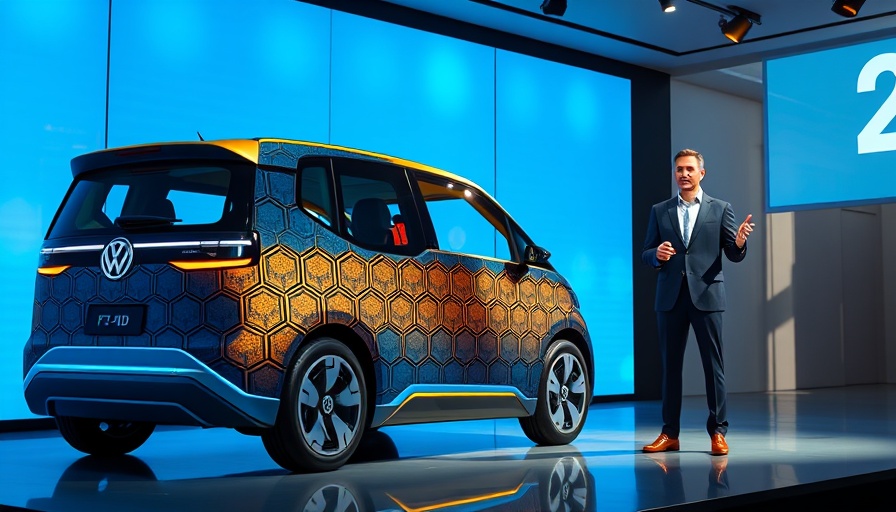
Volkswagen Enters the Autonomous Ride-Hailing Market
Volkswagen has officially unveiled its upcoming fleet of robotaxis, aimed specifically at the lucrative ride-hailing market, in a significant partnership with Uber that involves delivering 480 autonomous vehicles to Los Angeles by next year. As tech giants like Waymo and Tesla have surged ahead in this sector, Volkswagen aims to carve out its niche not by competing directly but by positioning itself as a key supplier to ride-hailing platforms.
Why the Robotaxi Market Matters
Experts estimate that the autonomous ride-hailing market could escalate to a staggering €450 billion by 2035, a figure that has captured the attention of many automakers. Volkswagen’s continued commitment to this market comes despite its counterparts like General Motors and Ford retreating due to profitability concerns. With Volkswagen's planned delivery coinciding with an expansive view of the future, this opportunity reflects a broader trend where traditional automotive players are shifting their strategies to adapt to technology-driven changes.
Volkswagen's Unique Strategy Amid Competition
Rather than directly managing its fleets, Volkswagen is opting to partner with established players in the ride-hailing space like Uber. This strategy aligns with the company's dedication to making substantial profits from more scalable segments compared to traditional automotive margins. According to Christian Senger, a VW Group executive, "Profit margin expectations in the mobility sector tend to be in the low single digits... But in AI, they begin in the double digits. That’s the big opportunity for Volkswagen in the future." This insight not only underscores Volkswagen's strategic pivot but also highlights the transformative potential of AI in the automotive industry.
Future Trends in Tech and Transportation
The competition is fierce; competitors like Waymo are expanding their presence in major cities, while Tesla gears up for testing its own robotaxi technologies. This showcasing of advancements suggests that the autonomous transport landscape will continue to evolve rapidly over the coming years, prompting questions regarding regulation, public acceptance, and the overall viability of these service models.
What This Means for Local Markets
In a broader context, Volkswagen’s entry into the robotaxi market could open up fresh avenues for innovation within local economies. As VW's IDs Buzz AD vehicles become operational, they could potentially reshape the dynamics of urban travel in Los Angeles and similar cities—engendering new consumer behaviors and market expectations.
The robotaxi initiative by Volkswagen signals a pivotal moment in the ongoing narrative of automotive evolution, one that intertwines technology, sustainability, and consumer services. Observing these developments may yield profound insights into future automotive trends.
 Add Row
Add Row  Add
Add 



Write A Comment